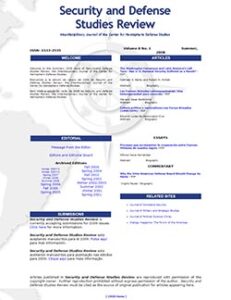In this paper, we examine whether the 1990s neoliberal reforms, commonly known as the Washington Consensus, which many Latin American nations implemented, ultimately impacted US national security. Given the rise of leftist regimes in Argentina and Venezuela coupled with the distancing of former allies in Brazil and Chile, we ask whether these reforms, meant to strengthen US national security, harmed it instead. We briefly review the literature on the causes of the Latin American economic crises, which led to the Washington Consensus and explore the various methods of reform implementation in four countries of strategic interest to the United States: Argentina, Brazil, Chile, and Venezuela. Examining whether the reforms, in general, were successful, we consider competing theories on the success (or the failure) of the reforms in these countries. Reviewing evidence on the reforms' impact on these nations, we discuss whether or not the reforms should be abandoned. We find that while stakeholders held competing objectives and divergent opinions existed on the scope, type, and speed of the reforms, the reforms appear to have improved economic growth and reduced poverty. We argue that, despite associating neoliberal reforms with increasing anti-American sentiment, Latin American support for free trade and other aspects of the neoliberal reforms remains strong. For this reason, we argue that the United States should reinvigorate support for these reforms.

